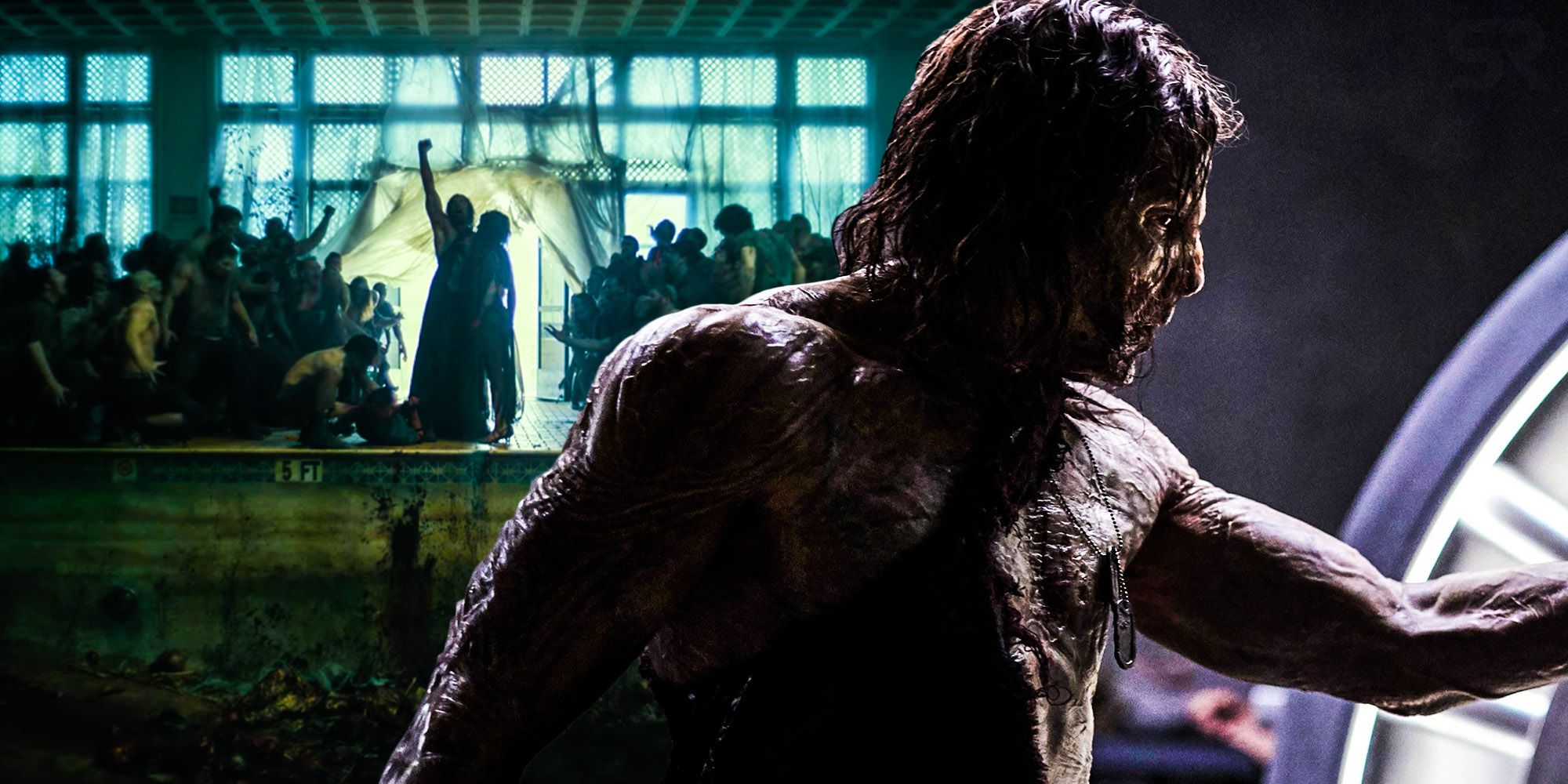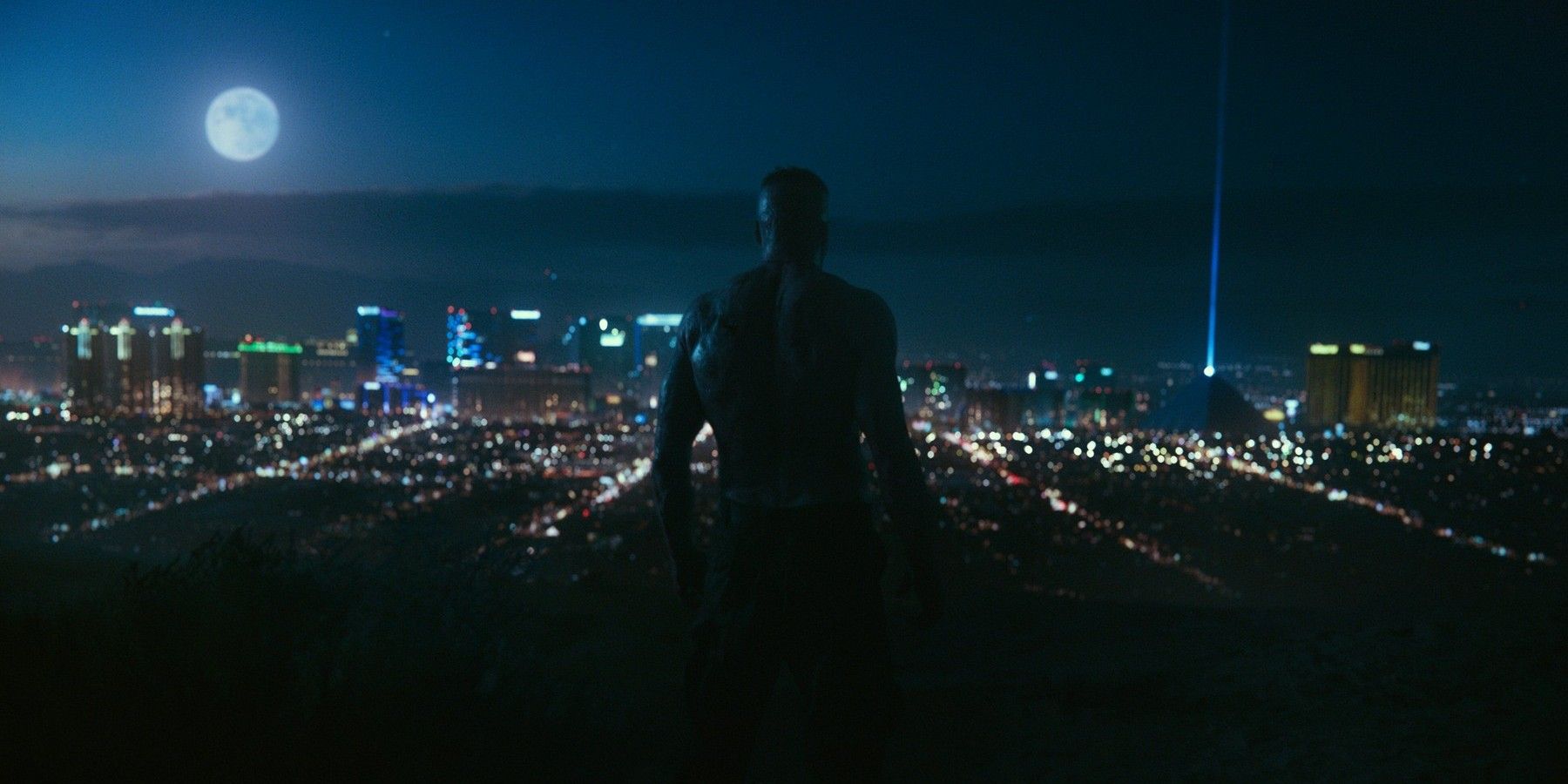Zeus may have been the biggest threat to the heist crew (other than the nuke from the U.S. military) in Army of the Dead, but he isn't a true typical villain, with a few main characteristics separating him from normal movie monsters. While it's normal for zombie movies to make the zombies a threat, but make the real villains other humans, Army of the Dead's introduction of smarter Alpha zombies marks a major difference, especially with Zeus (Rochard Cetrone).
While normal movie zombies, like the shamblers in Army of the Dead are just mindless undead that are more like a force of nature than a personified villain, Army of the Dead gave them more sophistication, communication, and even a sort of society. The first introduction to the Alpha zombies in the quarantine zone is a face-off with the queen zombie that was resolved with a barter for the life of the border guard, Burt Cumings (Theo Rossi). Because of changes like this, it makes any threat posed by the zombies a sense of intentionality, suggesting the Alphas can choose between violence and non-violence, so an examination of the aggressions of the zombies throughout the movie reveals they were never the actual villains of this story.
This idea is explained by Zack Snyder in the book Army of the Dead: A Film by Zack Snyder: The Making of the Film by Peter Aperlo. "Most movie monsters are ambitious in that they want something, they're attacking you...With Zeus, if you analyze each scene that he's in when he's attacking someone, it's because he's been betrayed or double-crossed. The motivations for him fighting back always come out of him being defensive rather than offensive. I think that's an important thing. Zeus has aspirations and hopes and dreams, if you will, but he wants to be left alone. There's a line in the movie where Lilly the coyote says, 'you guys keep acting like this place is their prison. It's their kingdom.' That lets you know his motivation. Zeus and the Alphas could easily climb out of the city, but they choose to stay."
The only time in the movie Zeus could be seen as fighting offensively would be the initial attack on Vegas. He's a lot more like a villain there than anywhere else in the movie since he's attacking innocent people, but Alphas are still more like evolved animals than fully intelligent humans, and the Vegas attack was immediately after he broke out. Also, since almost nobody knows about the Alphas, that means the Shamblers were the ones doing all the damage, so Zeus may have been hiding the Alpha zombies away, and the shamblers are out of his control. Adding to this, Zeus only makes Alphas and other Alphas make shamblers, so while the shamblers are a result of him, they weren't created directly by him, and the Alphas he created were bitten after Zeus broke free and had to defend himself against the soldiers.
The part that's hard to get around is the fact that he is still growing his army of Alphas, which requires him to capture and biting humans against their will, which is certainly villainous, although it's done in service of a goal of the Alphas being able to naturally reproduce instead of continuing to bite and convert living humans. He doesn't attack the crew until after he discovers Martin (Garret Dillahunt) had destroyed that goal by killing the queen. This puts him into the classic ends-justify-the means villain quandaries Snyder loves about villains like Ozymandias in Watchmen, killing millions to save billions. Zeus may not be killing millions, but he is arguably saving billions, as zombie outbreaks are traditionally expected to sweep the whole globe. Zeus may not have the same theatrical portrayal since he doesn't even speak, but the moral quandary certainly separates him from other movie monsters.


